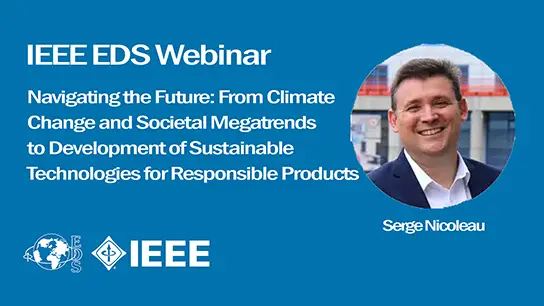Effects of Climate Change and the Remedy through Nanotechnology
Dr. Kanika Singh, Holly Handley
-
Members: FreeSYSC
IEEE Members: Free
Non-members: FreeLength: 00:52:09
Climate change has emerged as a major environmental threat that requires immediate attention. However, nanotechnology, due to the unique properties of nanomaterials, offers a wide range of applications in various sectors such as environment, agriculture, food, and energy. Environmental nanotechnology, in particular, has the capability to tackle a diverse range of environmental problems. Additionally, nanotechnological products and processes are considered to be the most effective and innovative tools in achieving sustainability goals. The use of nanostructured materials, such as nanocomposites, functionalized nanomaterials, metal organic frameworks, nanocatalysts, carbonaceous materials, nano zeolites, nano silica, nano lubricants, and nano coatings, have shown great promise in addressing environmental issues. These nanomaterials possess unique properties such as high surface area, enhanced reactivity, and improved mechanical strength, which make them highly efficient in environmental applications. For example, nanocatalysts have shown great potential in wastewater treatment, air purification, and pollutant degradation, while nanocomposites have been utilized in the remediation of contaminated soils and water. The talk will highlight various nanotechnology methodologies adopted to improve climate change. Inspiring sustainable solutions with Generative AI will also be elaborated during the presentation.


